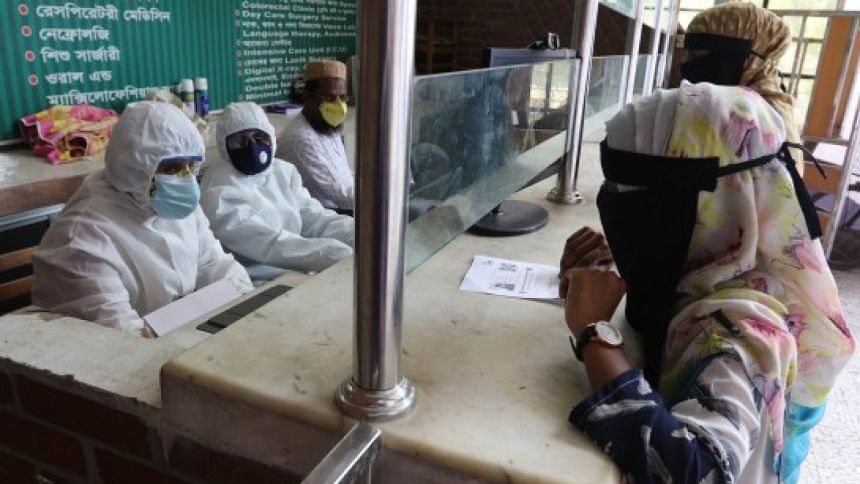Covid-19 taking toll on people’s general, mental health, six studies show

Six recent studies by the Brac James P Grant School of Public Health (JPGSPH), Brac University and Bangladesh Health Watch (BHW) explored the toll the coronavirus was taking on the general and mental health of people in Bangladesh.
The studies were conducted on the population at large -- RMG workers, frontline health workers, and marginalised groups, including the transgender community -- in the country.
The studies found that health workers such as doctors and nurses, garment workers, and the urban poor living in informal settlements, are struggling to cope with the sudden effects that the coronavirus outbreak has had on their lives.
Rapid case studies of the urban poor in Dhaka city and transgender community found high levels of fear and panic among individuals about coronavirus. While the symptoms of Covid-19 remain unclear among most, stigma, surveillance, discrimination and harassment have also increased within these communities.
In another study, 60 frontline health workers involved in Covid-19 management mentioned the urgent need for personal protective equipment (PPEs) of appropriate quality.
The health workers showed greater preference for PPEs compared to monetary incentives such as those announced by the prime minister recently.
Not only are the health workers physically exhausted, they are also experiencing immense mental stress due to the fear of infecting their family members.
JPGSPH is also running a multi-phase phone survey to gain a better understanding of the effects of Covid-19 on aspects such as income, nutrition, gender, and mental health.
A total 1,309 individuals were reached between April 6 and April 13 in the first phase of the studies.
Alarmingly, the survey showed that there were households with complete loss of income (58%), who were significantly more stressed than households with partial (29%) or no loss of income (13%).
A grim scenario prevails over the overall "quality" of the awareness and knowledge about Covid-19 as well, according to the studies.
Rural and female respondents know much less about the mode of transmission than their counterparts (urban and male respectively), amid widespread stigma and fears of death because of the virus.
The six studies came up with a range of recommendations which, if implemented, can greatly help alleviate the effects of the pandemic on the people.
The recommendations include: ensuring adequate number of PPEs of appropriate quality for all frontline health workers in Covid-19 management, arrangement of accommodation for them near their workplace to allay anxieties, and implementation of their roster and rotation as per the 7/14 model (7 days of duty followed by 14 days of quarantine) as was followed in Wuhan.
Also, cash and food support for low-income groups have to be boosted alongside more proactive awareness and knowledge campaigns, including addressing misinformation and the issue of stigma.
The findings of the studies, shared with journalists during an online press launch today.

 For all latest news, follow The Daily Star's Google News channel.
For all latest news, follow The Daily Star's Google News channel. 



Comments